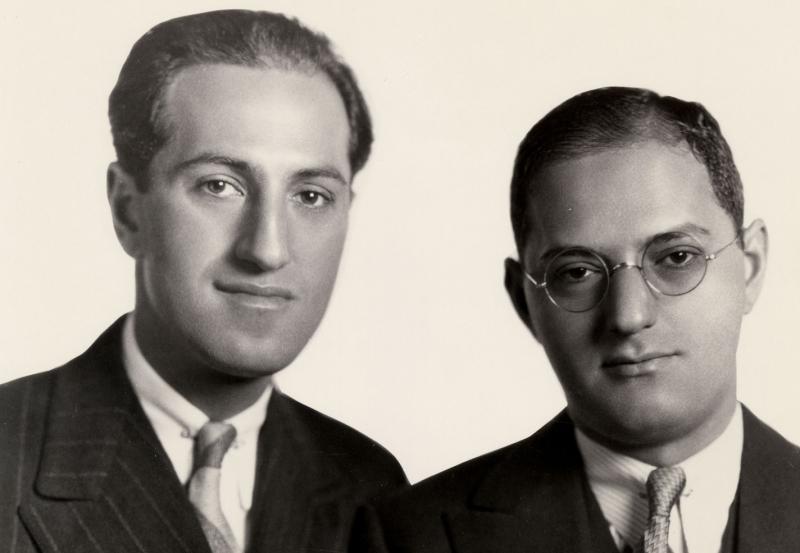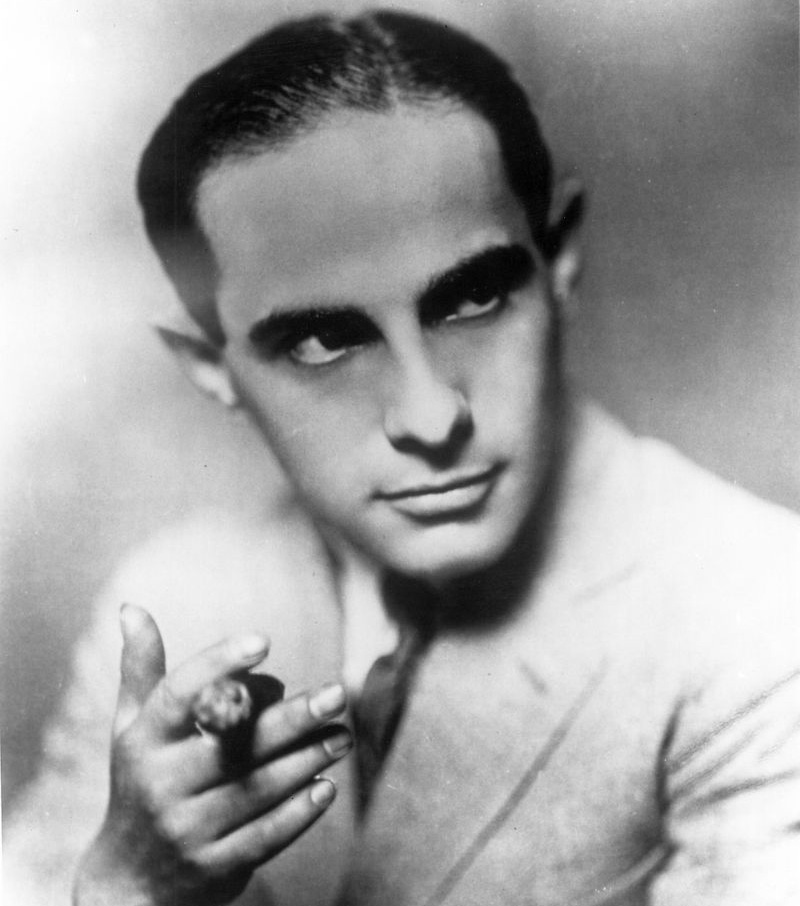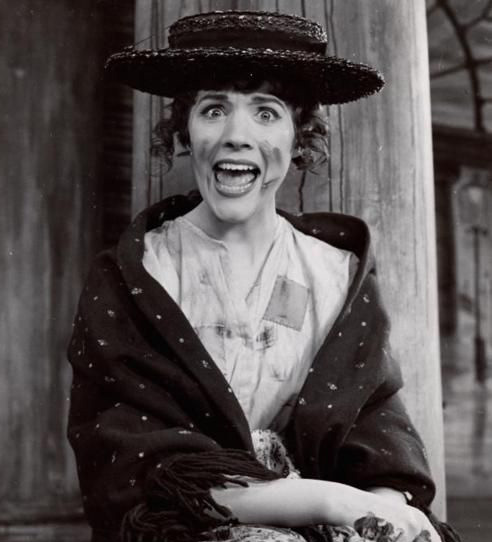Sound of Musicals with Neil Brand, BBC Four | reviews, news & interviews
Sound of Musicals with Neil Brand, BBC Four
Sound of Musicals with Neil Brand, BBC Four
The magic swirling trip from the Edwardian musical to the Broadway blockbuster

"Oh what a beautiful morning! Oh what a beautiful day!" Curly the cowboy sang in the opening scene of Oklahoma!, the first musical from Rodgers and Hammerstein (1943).
In the midst of our grey winter, this first episode of Neil Brand’s three-part tour of the history of the stage musical whisked us through the first half of the 20th century in a dizzying rollercoaster of great songs and fascinating plots (but what a clunky title for such an exhilarating programme). Our genial guide, a composer himself, wore his formidable knowledge lightly.
 At the turn of the century, Gilbert and Sullivan had morphed into the Edwardian musical, which was characteristically a romantic comedy, imported from London to New York – Floradora for example (1900), with its hit song "Tell Me Pretty Maiden". The show was dainty and energetic light entertainment, emblematic of the musical comedy factory which then dominated. Chorus lines in the Roaring Twenties could even be characterised as tits and kicks.
At the turn of the century, Gilbert and Sullivan had morphed into the Edwardian musical, which was characteristically a romantic comedy, imported from London to New York – Floradora for example (1900), with its hit song "Tell Me Pretty Maiden". The show was dainty and energetic light entertainment, emblematic of the musical comedy factory which then dominated. Chorus lines in the Roaring Twenties could even be characterised as tits and kicks.
By the late 1920s it was American talent, dominated by those New York lyricists and composers of German and Eastern European Jewish descent, George and Ira Gershwin, Jerome Kern, Irving Berlin, Richard Rodgers, Lorenz Hart (pictured above) and Oscar Hammerstein among them. The exception that proves the rule, Cole Porter, a wealthy Midwesterner, was hardly discussed, perhaps because although he was a genius as a songwriter, most of his musicals have hardly survived, except for Kiss Me Kate.
Jerome Kern was a second generation German Jewish New Yorker, who actually crossed the Atlantic to study music in Heidelberg. One of his first hits was revving up the English import, the ballad "They Didn’t Believe Me", The Girl From Utah’s memorable song. Brand picked it apart to show how leaving behind the traditional waltz time for four beats per bar sounded out the movement of a horsedrawn buggy integral to the song and changed how we absorbed the music.
Enter the brothers Gershwin with Girl Crazy, with its magnificent "I’ve Got Rhythm". Yes, indeedy. And by 1927 we have Jerome Kern and Oscar Hammerstein’s Show Boat, the first real game-changer, a blend of story and song. Here, the "book" of the musical was based on the novel by Edna Ferber, and the story took in darker aspects of America as the life of the denizens on the Mississippi showboat were explored, taking in racism, alcoholism, abandonment, and destructive secrets. Every song, not least "Ol' Man River", pushed the narrative forward. Brand dissected its lyrics, the techniques of half rhymes keeping us guessing and alert, and full rhymes providing resolution.
 Stephen Schwartz (Godspell, Wicked) brilliantly pointed out the melancholy behind Hart’s lyrics (set to Richard Rodgers's music) of "My Funny Valentine", from Babes in Arms. Hart, we were told, was a tormented closeted gay in those different times, and an alcoholic; he was described as the most brilliant lyricist of the century.
Stephen Schwartz (Godspell, Wicked) brilliantly pointed out the melancholy behind Hart’s lyrics (set to Richard Rodgers's music) of "My Funny Valentine", from Babes in Arms. Hart, we were told, was a tormented closeted gay in those different times, and an alcoholic; he was described as the most brilliant lyricist of the century.
From Oklahoma! we moved to the bittersweet Carousel, and a final conclusion with yet another team, Alan Jay Lerner and Frederick Loewe, and My Fair Lady. A witty dissection of the English class system based on George Bernard Shaw’s Pygmalion, it nevertheless premiered on Broadway, with a little known English lead, Julie Andrews (pictured above). We were reminded of how Moss Hart, the director, coached her to stardom in a 48-hour last-gasp seminar to get her to inhabit the role.
I defy you to watch from the best house seats without coming away humming and hopeful. Here too were lots of clues about why the best musicals are great, and their songs properly rewarded with a very long life after the curtain comes down. And I am still intrigued to know why you catch every word in a musical, but never in opera.
Add comment
The future of Arts Journalism
You can stop theartsdesk.com closing!
We urgently need financing to survive. Our fundraising drive has thus far raised £49,000 but we need to reach £100,000 or we will be forced to close. Please contribute here: https://gofund.me/c3f6033d
And if you can forward this information to anyone who might assist, we’d be grateful.

Subscribe to theartsdesk.com
Thank you for continuing to read our work on theartsdesk.com. For unlimited access to every article in its entirety, including our archive of more than 15,000 pieces, we're asking for £5 per month or £40 per year. We feel it's a very good deal, and hope you do too.
To take a subscription now simply click here.
And if you're looking for that extra gift for a friend or family member, why not treat them to a theartsdesk.com gift subscription?
more TV
 The Diplomat, Season 3, Netflix review - Ambassador Kate Wyler becomes America's Second Lady
Soapy transatlantic political drama keeps the Special Relationship alive
The Diplomat, Season 3, Netflix review - Ambassador Kate Wyler becomes America's Second Lady
Soapy transatlantic political drama keeps the Special Relationship alive
 The Perfect Neighbor, Netflix review - Florida found-footage documentary is a harrowing watch
Sundance winner chronicles a death that should have been prevented
The Perfect Neighbor, Netflix review - Florida found-footage documentary is a harrowing watch
Sundance winner chronicles a death that should have been prevented
 Murder Before Evensong, Acorn TV review - death comes to the picturesque village of Champton
The Rev Richard Coles's sleuthing cleric hits the screen
Murder Before Evensong, Acorn TV review - death comes to the picturesque village of Champton
The Rev Richard Coles's sleuthing cleric hits the screen
 Black Rabbit, Netflix review - grime and punishment in New York City
Jude Law and Jason Bateman tread the thin line between love and hate
Black Rabbit, Netflix review - grime and punishment in New York City
Jude Law and Jason Bateman tread the thin line between love and hate
 The Hack, ITV review - plodding anatomy of twin UK scandals
Jack Thorne's skill can't disguise the bagginess of his double-headed material
The Hack, ITV review - plodding anatomy of twin UK scandals
Jack Thorne's skill can't disguise the bagginess of his double-headed material
 Slow Horses, Series 5, Apple TV+ review - terror, trauma and impeccable comic timing
Jackson Lamb's band of MI5 misfits continues to fascinate and amuse
Slow Horses, Series 5, Apple TV+ review - terror, trauma and impeccable comic timing
Jackson Lamb's band of MI5 misfits continues to fascinate and amuse
 Coldwater, ITV1 review - horror and black comedy in the Highlands
Superb cast lights up David Ireland's cunning thriller
Coldwater, ITV1 review - horror and black comedy in the Highlands
Superb cast lights up David Ireland's cunning thriller
 Blu-ray: The Sweeney - Series One
Influential and entertaining 1970s police drama, handsomely restored
Blu-ray: The Sweeney - Series One
Influential and entertaining 1970s police drama, handsomely restored
 I Fought the Law, ITVX review - how an 800-year-old law was challenged and changed
Sheridan Smith's raw performance dominates ITV's new docudrama about injustice
I Fought the Law, ITVX review - how an 800-year-old law was challenged and changed
Sheridan Smith's raw performance dominates ITV's new docudrama about injustice
 The Paper, Sky Max review - a spinoff of the US Office worth waiting 20 years for
Perfectly judged recycling of the original's key elements, with a star turn at its heart
The Paper, Sky Max review - a spinoff of the US Office worth waiting 20 years for
Perfectly judged recycling of the original's key elements, with a star turn at its heart
 The Guest, BBC One review - be careful what you wish for
A terrific Eve Myles stars in addictive Welsh mystery
The Guest, BBC One review - be careful what you wish for
A terrific Eve Myles stars in addictive Welsh mystery
 theartsdesk Q&A: Suranne Jones on 'Hostage', power pants and politics
The star and producer talks about taking on the role of Prime Minister, wearing high heels and living in the public eye
theartsdesk Q&A: Suranne Jones on 'Hostage', power pants and politics
The star and producer talks about taking on the role of Prime Minister, wearing high heels and living in the public eye

Comments
One thing that turned me off